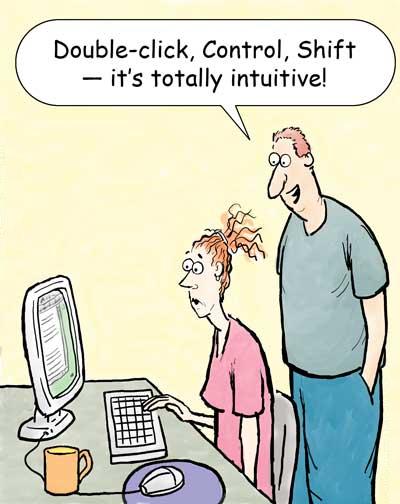Jonathan Cox has joined us an administrator. We warmly welcome him and are very grateful to have him. Jonathan is a former student of Bob Denham’s and now lives and works in Richmond, Virginia.
Monthly Archives: March 2010
“It’s Algonquin for ‘the good land'”
httpv://www.youtube.com/watch?v=GtqesudKxSA
On this date in 1948, Alice Cooper was born. Above is his classic meeting with Wayne and Garth in Wayne’s World.
For middle aged men like me who still remember defiantly adopting “I’m Eighteen” as an anthem at the age of 14, there’s a vintage 1971 live performance for you after the jump.
Religious Knowledge, Lecture 19
Le Hire, Job Restored, 1648
Lecture 19. February 24, 1948
THE SEARCH FOR WISDOM
There are concentric spheres in the Book of Job. The inner sphere is a morality play with virtue and vice in argument with friends. From the deadlock of the argument to the end of Elihu’s speech is another sphere. The still-wider concentric sphere is that of a divine comedy—God watching Job and then restores him. There are ironic overtones to the “tragic” story.
The same concentric pattern is in the life of Jesus. The active Jesus, the teacher and healer, is the kernel of the story. His tragedy is another sphere. Then comes the divine comedy of redemption. King Lear is a morality play at heart with the good people against the bad. Outside that is tragedy which is not moral because Cordelia dies. Around that is the adumbration of the comedy, of a man who attempted to find divinity in kingship but finds it only in suffering humanity.
In the last chapter, verse 8, Job becomes the redeemer of his friends. “And my servant Job will pray for you.” But Job has suffered too much for the restoration of his flocks and children to be the answer to his problem. Job’s is a personal search for wisdom.
What the restoration of his children represent are the symbols of that new wisdom.
In the Old Testament, the histories focus on a king. In the prophecies, they focus on the watcher as opposed to the doer of the New Testament. Job is the third division of the Old Testament, the Wisdom books, like Solomon, Proverbs and Ecclesiastes. What takes place is a personal form of wisdom.
Comedy will not come with restoration. Too much has happened. God is too responsible. Job is not hankering after his goods and children but the reality of which they are symbols; this he identifies with wisdom. He begins the search for wisdom with “why did God do this to me?” This expands into “what is God?” The search for God is the search for wisdom. And God is inside Job.
In Chapter 10, God describes Behemoth and in Chapter 14, Leviathan. The chief point is this description is the phrase “he is king over all the children of pride.” Why is this so significant? Why does it enlighten Job so that he says “now my eye sees thee.” We would expect God to lead him to Satan, but he leads him to Leviathan. Satan and Leviathan are the same person. Satan stands for the tyranny of nature and man. Job sees the form of his tragedy as a monster, that is, now he can see it because he has been coughed out of the belly of Leviathan.
Job is detached from a world of the tyranny of man and nature. He has found a new centre of balance in a spiritual world where God is, which is inside himself. He no longer lives in the moral world of the conflict of good and evil. The world he is in has only heaven and hell, a personal God who is human against a monster which is evil, that is, Satan.
Shakespeare: Beware the Ides of March
httpv://www.youtube.com/watch?v=Je0gTnheVe4
Nuff said.
Pennies From Heaven
httpv://www.youtube.com/watch?v=j7lOdZOnTWY
On this date in 1958, tenor sax player Lester Young died of liver disease at age 49. Above, the Lester Young Quintet performing “Pennies from Heaven” in 1950.
Frye Alert
Starting today, we’re trawling the Web daily for anything Frye related.
Here’s a find: Graham Good has posted an essay under the title “Northrop Frye and Liberal Humanism” (PDF file). I haven’t read it right through, although I did chuckle to see that Sir Frank Kermode makes his predictable contribution dismissing Frye in the second paragraph.
Good is also the author of Humanism Betrayed: Theology, Culture and Ideology in the Contemporary University published by McGill-Queen’s University Press. The overview of the book reads in part:
In Humanism Betrayed Graham Good offers a defence of liberal humanism against the illiberal trends, political and intellectual, that dominate today’s university. He uses the McEwen Report episode at the University of British Columbia to illustrate the current political climate in universities, showing how due process was neglected in favour of ideological inquisition.
His chapter on Frye can be seen here, beginning on page 89.
Tim Burton’s Alice in Wonderland
httpv://www.youtube.com/watch?v=gCM4JiJ6B2I
Lewis Carroll’s books of fantasy, Alice’s Adventures in Wonderland and Through the Looking-Glass, were important to Frye, and he mentions them frequently in the Notebooks. In the Anatomy of Criticism he says that “the Alice books are perfect Menippean satires, and so is [Charles Kingsley’s] The Water-Babies” (Anatomy 310). Elsewhere, he identifies a quality “of slightly nutty fantasy which has been the characteristic of Oxford from time immemorial” that links works such as The Anatomy of Melancholy, Alice in Wonderland, and the works of the Inklings (C. S. Lewis, J. R. R. Tolkien, and Charles Williams) – the latter products of the Oxford in which Frye himself studied (“The Critic and the Writer,” Collected Works 7:470-71).
Tim Burton’s new film Alice in Wonderland is more of an epic adventure than a Menippean satire, and interestingly enough it combines elements from the two Alice books with elements of The Lord of the Rings, the Narnia stories, and perhaps one or two from The Wizard of Oz. The result is a successful and charming film whose ethos is quite different from the bizarre world created by Lewis Carroll.
The opening of the film effectively represents the famous descent which was the subject of some discussion on the blog last year; thereafter, the story becomes a quest narrative and a struggle against evil. Helena Bonham Carter and Johnny Depp are excellent as the Red Queen and the Mad Hatter. It is a visually stunning film, in Frye’s terminology a triumph of opsis.
What We Know About Climate Change
httpv://www.youtube.com/watch?v=w9SGw75pVas
Here’s a good just-the-facts overview of anthorpogenic global warming that directly cites peer reviewed scholarship.
“Primary Concerns Must Become Primary, Or Else”
Gaia, Goddess of the Earth, Mother of the Gods
Thanks to extensively funded and aggressively concentrated efforts on the political right, there is still a high degree of global warming denialism going on out there. In fact, recent polls in the U.S. indicate that the sudden sharp rise in denial is almost exclusively on the right side of the spectrum, which confirms that for such people the issue is not scientific but political. It’s a familiar enough phenomenon, and it’s the M.O. most conspicuously of Fox News: if the “libruls” are for it, then it is hippy-dippy bullshit that must be shouted down.
The best case scenario (at least for those who understand that science is not a political brickbat to advance the interests of Exxon Mobil) is that we have very little time — measurable in just a handful of years — to reverse trends before the ecosystem tips and the warming process becomes fatally self-sustaining. The only “debate” here is generated by the sophistry of shills for the fossil fuel industry who between them cannot produce one piece of scholarship that passes peer review. This is worth emphasizing: for all of the “debate” as it is characterized by a feckless and complacent mainstream news media (as it may be fairly characterized in the U.S.), there is not one piece of peer reviewed scholarship that denies the fact of anthropogenic climate change.
Again, that’s the best case scenario.
The worst case scenario is provided by James Lovelock, author of the Gaia hypothesis. An outline of his doomsday vision can be found here. Here’s a brief sample:
This article is the most difficult I have written. . . . My Gaia theory sees the Earth behaving as if it were alive, and clearly anything alive can enjoy good health, or suffer disease. Gaia has made me a planetary physician and I take my profession seriously, and now I, too, have to bring bad news.
The climate centres around the world, which are the equivalent of the pathology lab of a hospital, have reported the Earth’s physical condition, and the climate specialists see it as seriously ill, and soon to pass into a morbid fever that may last as long as 100,000 years. I have to tell you, as members of the Earth’s family and an intimate part of it, that you and especially civilisation are in grave danger.
Our planet has kept itself healthy and fit for life, just like an animal does, for most of the more than three billion years of its existence. It was ill luck that we started polluting at a time when the sun is too hot for comfort. We have given Gaia a fever and soon her condition will worsen to a state like a coma. She has been there before and recovered, but it took more than 100,000 years. We are responsible and will suffer the consequences: as the century progresses, the temperature will rise 8 degrees centigrade in temperate regions and 5 degrees in the tropics.
By Lovelock’s estimation, billions may be dead by the end of this century. But even if he is wrong, the best case scenario confirms what ought to be our worst fears. We are all Romanovs now. Everyone is culpable and everyone is vulnerable.
As anyone who knows Frye’s Words with Power is aware, one of the primary concerns Frye identifies is sex and love, and the prophetic manifestation of that concern in literature is represented by the Garden where the generative power of nature and the recreative power of the human imagination are identified. Its social vision is pastoral rather than competitive, and it is evocative of the Christian apocalyptic vision of the Book of Revelation in which nature in its present state falls away to reveal a city-garden at the end of time where God and humanity are one. The point of course is that this is not an “event” that will “occur in the future.” The apocalypse, according to Frye (following Blake), is potential in every moment in every one of us. As that nice Jewish rabbi Yeshua once observed, “the kingdom of heaven is within you.” In our current fallen state, our power to act in the name of love is the first power we deny, and our loveless rape of an “objective” nature from which we somehow consider ourselves distinct and independent is a delusion that will soon overtake us if we cannot push aside the veil of denial and see where we really are.
As Frye rather ominously put it, “primary concerns must become primary, or else.”
This is not a “partisan” issue — except insofar as partisans make it one with greed, cowardice, and lies. Canada’s failure to live up to its legally binding commitments to the Kyoto Protocol, for example, falls into that category.
Saturday Night Video
Tonight a narcotic selection of songs of haunting beauty.
First, gladly fulfilling our Canadian content obligations, here’s the Cowboy Junkies cover of “Sweet Jane,” which even Lou Reed says is the best version of the song ever.
httpv://www.youtube.com/watch?v=BHRFZFmEq9o



